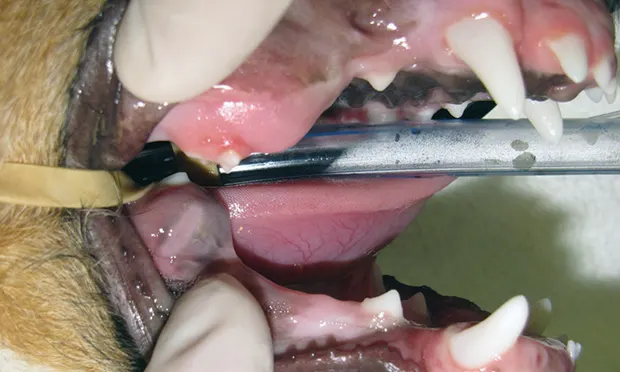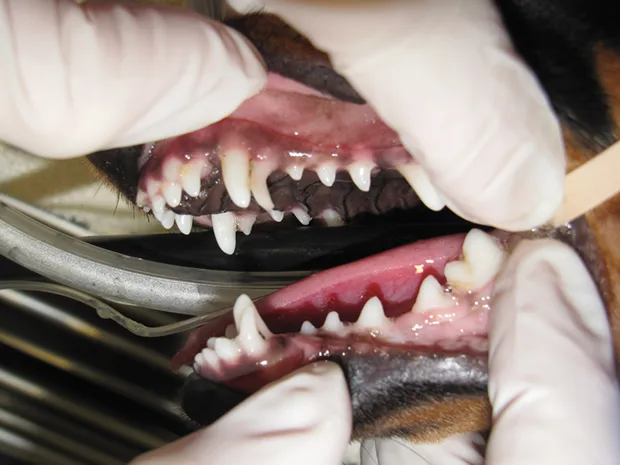Dental Abnormalities in Puppies & Kittens
Kendall Taney, DVM, DAVDC, FAVD, Center for Veterinary Dentistry & Oral Surgery, Gaithersburg, Maryland

Puppies and kittens can have congenital or acquired teeth and jaw abnormalities that should be addressed quickly to prevent lifelong morbidity.
Abnormalities such as persistent deciduous teeth (Figure 1) can cause crowding and predisposition to periodontal disease. Deciduous teeth still present when permanent tooth eruption occurs may disrupt the normal position of that tooth and lead to acquired malocclusion.
Congenital malocclusions are often apparent within weeks of birth; many are a result of skeletal abnormalities, such as mandibular brachygnathism, which can result in mandibular distocclusion (Figure 2). Malocclusions, whether acquired or congenital, can cause significant discomfort for a pet during mastication and lead to soft tissue damage and oronasal communication.
Missing teeth should always be investigated with dental radiography to determine whether they are truly missing or are impacted. Soft tissue impactions may resolve if treated early in the eruption phase (Figure 3). Hard tissue impactions also need to be addressed quickly if normal eruption is to occur. If a tooth fails to erupt, it will need to be extracted to prevent dentigerous cyst formation (Figure 4), a potentially destructive process that can affect adjacent teeth and bone (Figure 5).

FIGURE 1A
Persistent Deciduous Canine Teeth in a Dog
Presence of these teeth during eruption of permanent canines can cause the maxillary canine to be pushed mesially and the mandibular canine to be pushed lingually, resulting in malocclusion.